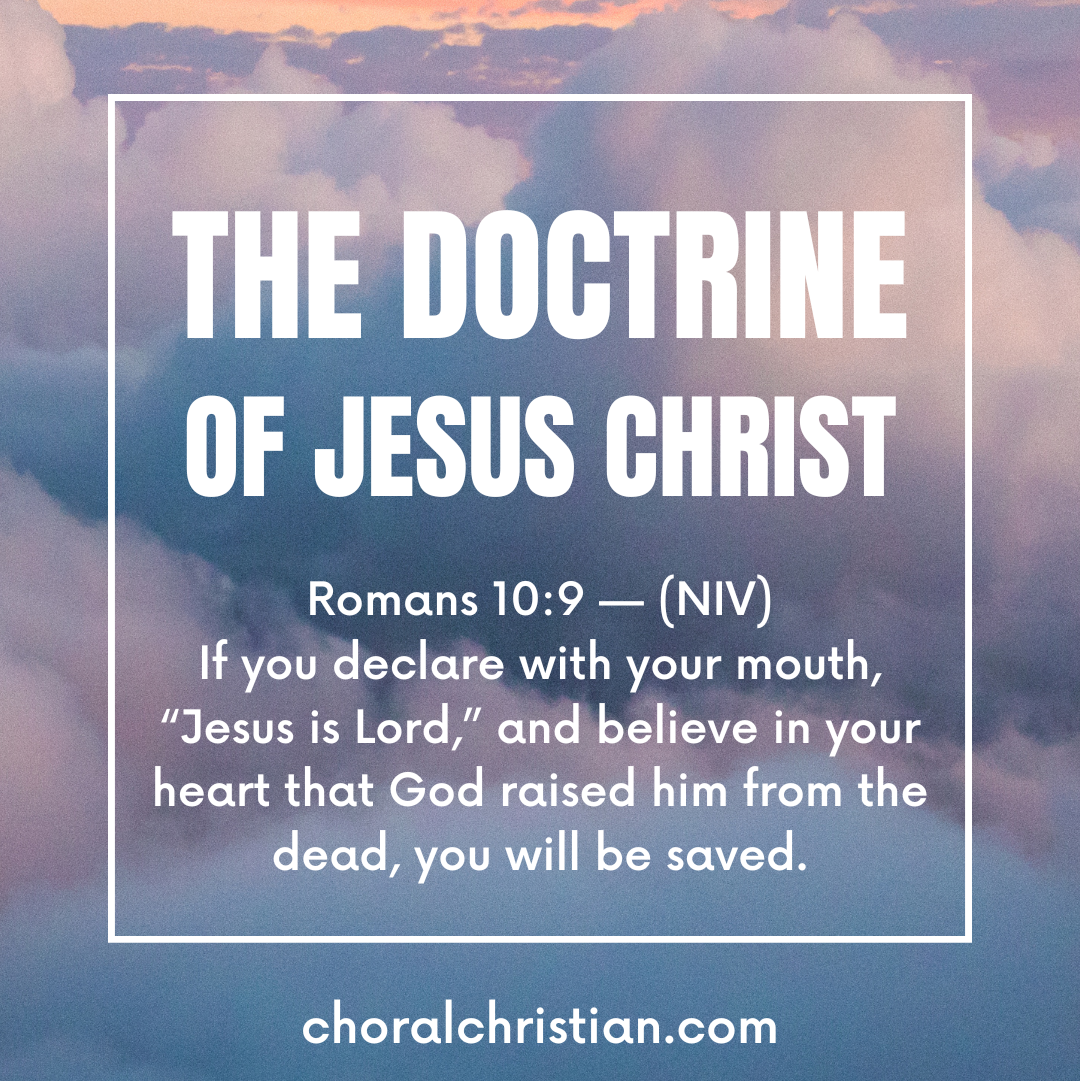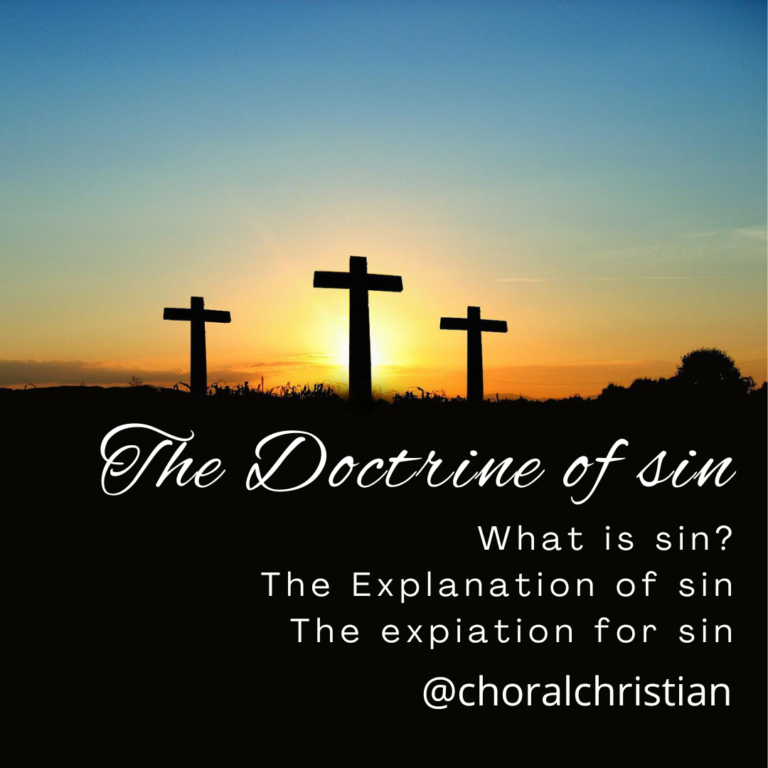Unlike other religions, without the person of Jesus Christ, there is no Christianity. So what does the Doctrine of Christ say?
I. The Deity of Jesus Christ – He is fully God and fully man
Divine names are given to Jesus Christ. He is Called God (John 1:1, Heb.1:8), the Son of God, the Lord. (Acts 4:33; 16:31).
Secondly, divine worship is ascribed to him. The Scriptures recognize worship as being due to God, and Christ accepts such worship and calls for it (John 4:10). God himself commands all men to worship the Son, as they do to Him (John 5:23).
He possesses the qualities of Deity shown in his Pre-Existence. (John 1:1), his Self-Existence and Life-Giving Power (John 5:21, 26) All the Fullness of the Godhead Dwelt in Him (Col.2:9).
Also, divine offices are ascribed to him. He is the Creator (John 1:3); He is the Upholder of All Things (Col.1:17; Heb.1:3.), He Has the Right to Forgive Sins (Mark 2:5-10), and He is to be the Judge of All Men (John 5:22). Jesus Christ possesses the Divine attributes of Omnipotence (Matt 28:18), Omniscience. (John 16:30, 2:24), and Omnipresence. (Matt.18:20)
II. The Humanity of Jesus Christ
Scripture clearly teaches that Christ was born of a woman, the virgin Mary (Matt.1:18) thus being born of a woman Jesus Christ submitted to the conditions of a human life and a human body.
Jesus grew in wisdom and stature as other Human Beings do:
And Jesus increased in wisdom and stature….”
He had the appearance of a man. (John 4:9). He possessed a human physical nature: Body Soul and spirit. (John 1:14) By his incarnation Christ came into possession of a real human nature. He was subject to the infirmities of human nature. (Matt.4:2, John 19:28)
III. Hypostatic Union and Kenosis
Hypostatic union is the union of Christ’s humanity and divinity in one hypostasis. The most basic explanation for the hypostatic union is that Jesus Christ is fully God and fully man. He is both perfectly divine and perfectly human, having two complete natures at once.
Kenosis is the ‘self-emptying’ of Jesus’ own will and becoming entirely receptive to God’s divine will. The New Testament does not use the actual noun kénōsis, but the verb form kenóō occurs five times (Ro.4:14, 1Co.1:17, 9:15, 2Co.9:3, Phil.2:7).
Of these five times it is in Phil 2:7, in which Jesus is said to have “emptied himself”, which is the starting point of Christian ideas of kenosis.
IV. The Atonement of Jesus Christ
The atonement cannot be separated from Jesus Christ. It is so important to Christianity for several reasons.
Christianity is a religion of atonement distinctively. It is the redemptive aspect of Christianity that distinguishes all other religions.
Christ was not primarily a religious teacher, a philanthropist, or an ethical example; He was all these and much more.
He was first and foremost the world’s Saviour and Redeemer. It is not putting the matter too strongly when we say that the incarnation was for the atonement. Christ came into this world to give His life a ransom for many (Matt.20:28).
The atonement is very prominent in scriptures. It is said that one out of every forty-four verses in the New Testament deals with this theme and that the death of Christ is mentioned one hundred and seventy-five times.
This gives us an idea of the importance of the atonement of Christ.

V. The Resurrection, Ascension, and Exaltation of Jesus Christ
The death of Christ cannot be over-emphasized. It holds a unique place in Christianity as it is the only religion that bases its claim to acceptance upon the resurrection of its founder. Paul in 1 Cor.15 says,
And if Christ be not risen, then is our preaching vain, and your faith is also vain (v.14).
Jesus Christ actually died. This is evident in the account of what happened when he was pierced in his side and in his appearance to his disciples triumphantly among others.
His body was actually raised from the dead. He appeared to His disciples in a bodily form. The body that was laid in Joseph’s tomb came forth on that first Easter morn twenty centuries ago as recounted in the Gospels.
When we speak of the Ascension of Christ, we refer to when the lord departed visibly from His disciples into heaven Acts 1:9-11
This same Jesus which is taken up from you into heaven,
VI. The Three Major Offices Christ Fulfils
Jesus occupies three main offices: Prophet, Priest, and King.
Jesus as prophet. A prophet of God is someone who reveals God, speaks for God, and communicates to people the truths that God wants them to know.
Undoubtedly, Jesus did this when he came to do the will of the Father. In the Old Testament, Moses said in Deut. 18:15.
The Lord your God will raise up for you a prophet like me from among you, from your countrymen, you shall listen to him.
Jesus refers to himself as a prophet.
Jesus as Priest. In the Old Testament, priests were the ones who offered sacrifices to God to cleanse of sin.
They were therefore representing Jesus, who is the true Priest who offered himself as a sacrifice to cleanse us of our sins.
Jesus is called a priest after the order of Melchizedek. As a priest, Jesus is our mediator between God and ourselves (1 Tim. 2:5).
Christ as King. A king is someone who has authority to rule and reign over a group of people. Jesus is just such a king. He is called the King of the Jews by the Magi. Jesus accepts that title
Jesus’ three offices do not diminish His Deity. Jesus is still fully divine and human even now (Col. 2:9) and presently holds the three offices mentioned above.
VII. Some Modern Controversies About the Doctrine of Jesus Christ
To some people, the death of Jesus Christ was the death of a martyr (the martyr theory)
Others believe that Christ, in His suffering of death, remains an example of adherence to principles of righteousness and truth, even to the point of death.
Some people believe that Calvary may be an episode in God’s government of the world. God, being holy, was showing His hatred of sin to us and so His wrath fell on Christ.
We need to believe and teach the world to know that the suffering and dead of Christ on the cross was to save humankind.
If you found this summary of the Holy Spirit insightful, you might also like:








3 Comments